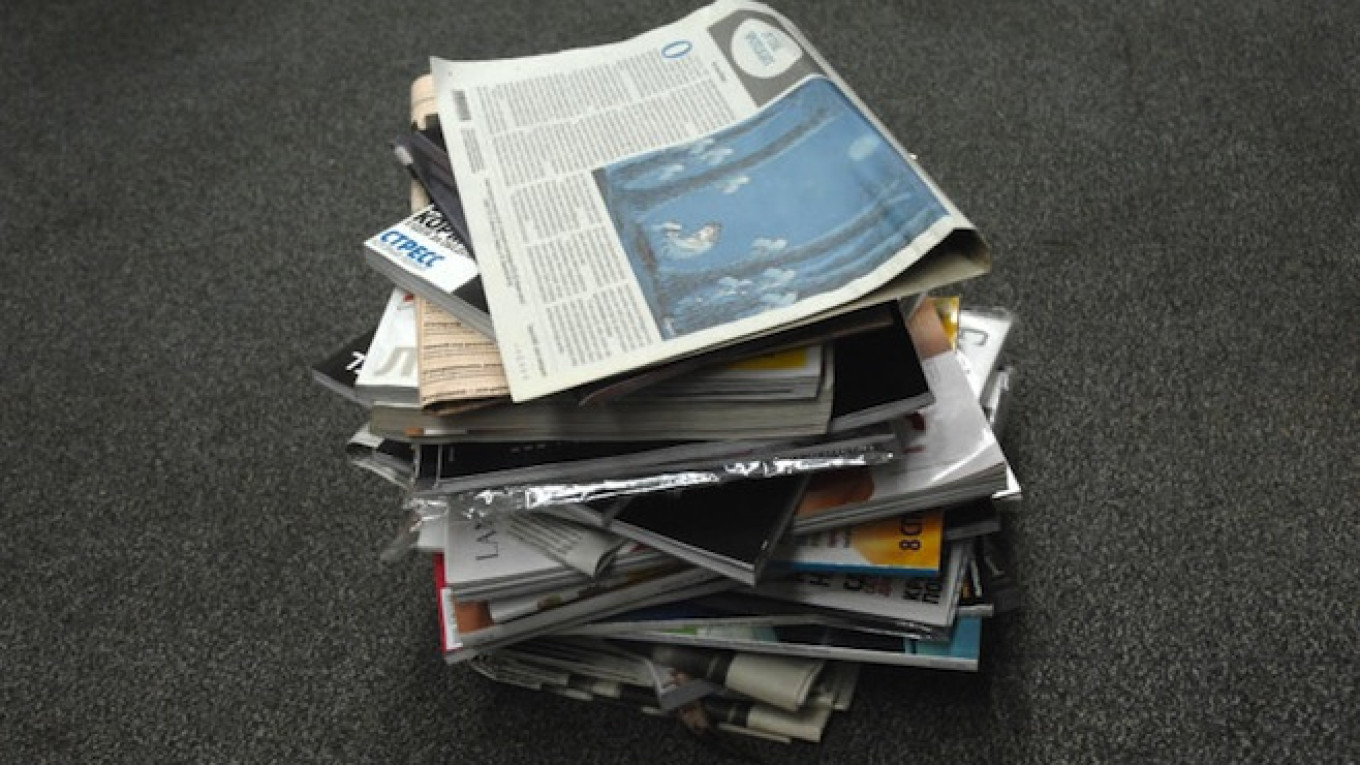Russian lawmakers have given initial backing to a draft law limiting foreign ownership of Russian media to 20 percent from the existing ceiling of 50 percent, a move critics say will reinforce the dominance of outlets loyal to the Kremlin.
With only one vote against the proposal, the draft law on Tuesday passed the first of three readings in the Duma, parliament's lower chamber, with the backing of 434 members.
If the bill passes the remaining readings and is signed into force by President Vladimir Putin, the new rules would take effect in 2016, giving media owners until Feb. 2017 to adjust their ownership structure.
Russian law currently puts the ceiling on foreign ownership of media in the country at 50 percent, but the draft proposes this be lowered to 20 percent.
The draft law stipulates that Russia could limit ownership rights of foreign media owners as well as stop operations of the given media outlet in case of any violations.
Lawmakers said curbs were necessary as foreign entities were in a position to influence and pressure Russian media outlets, and could thereby "threaten the information security of the state and inflict damage on the rights and freedoms of Russian citizens."
Media in Russia, especially television broadcasters, are under tight state control and Moscow has been consolidating its grip on print media and the Internet, where some dissenting opinions can still be expressed.
Russia's media sector has attracted the likes of German-listed Axel Springer and U.S. firm Hearst Media, both of whom have bought into the magazine market.
The influential business daily Vedomosti, co-owned by the Financial Times and the Wall Street Journal, may also be affected should the law pass.
"The media landscape in Russia today is completely monopolised by state- and state-affiliated media," said Igor Yakovenko, a media expert and a former head of a Russian journalists' union.
"No media independent from the state stands a chance today to compete either in terms of audience or influence. There is no threat to Russia's national security here. The threat is posed instead by the state media that are dealing with propaganda."
Russian state television and other channels have played a crucial role in promoting the Kremlin's policies among Russians, including on the latest conflict in Ukraine, and building Vladimir Putin's popularity among his countrymen in his third term as president.
By forcing owners to register their media outlets in Russia, the law would also provide authorities more sources of taxable revenue at a time when Russia is facing estimated capital outflows of about $100 billion this year.
A Message from The Moscow Times:
Dear readers,
We are facing unprecedented challenges. Russia's Prosecutor General's Office has designated The Moscow Times as an "undesirable" organization, criminalizing our work and putting our staff at risk of prosecution. This follows our earlier unjust labeling as a "foreign agent."
These actions are direct attempts to silence independent journalism in Russia. The authorities claim our work "discredits the decisions of the Russian leadership." We see things differently: we strive to provide accurate, unbiased reporting on Russia.
We, the journalists of The Moscow Times, refuse to be silenced. But to continue our work, we need your help.
Your support, no matter how small, makes a world of difference. If you can, please support us monthly starting from just $2. It's quick to set up, and every contribution makes a significant impact.
By supporting The Moscow Times, you're defending open, independent journalism in the face of repression. Thank you for standing with us.
Remind me later.


